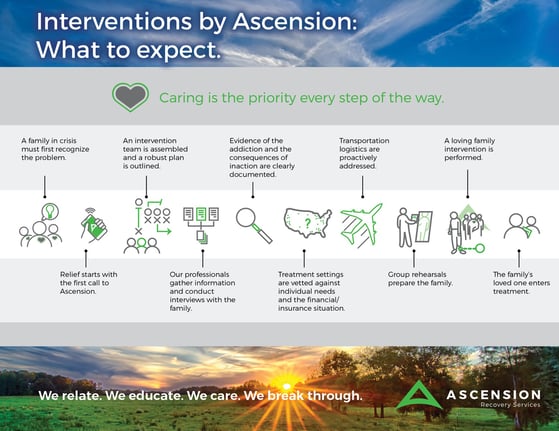Many people suffer from substance use disorder (SUD), and it can be detrimental to one’s physical or mental health.
Read on to learn more about SUD and how you or a loved one can get help.
WHAT IS SUBSTANCE USE DISORDER?
Substance use disorder (SUD) is a condition when a person’s use of alcohol and/or drug substances leads to impairment, such as health problems, disability or problems at work, school or home. Addiction represents the most severe form of this disorder.
According to the Diagnostic and Statistical Manual of Mental Disorders (DSM), there are three levels of SUD severity.
DSM is a handbook used by healthcare professionals that contains descriptions and symptoms to diagnosis mental disorders. A diagnosis of SUD is based on evidence of social impairment, risky use and impaired control.
DSM-5th Edition Criteria
The severity of the SUD is determined by the number of criteria the person meets:
- Minimum: 2-3
- Moderate: 4-5
- Severe: 6-11
WHAT SUBSTANCES CAN LEAD TO SUD?
There are several substances that can lead to SUD:
- Alcohol
- Marijuana
- Synthetic cannabinoids (bath salts)
- Stimulants such as methamphetamines, cocaine and adderall
- Club drugs such as ecstasy and molly
- Hallucinogens
- Inhalants
According to SAMHSA, in 2014, 21.5 million Americans, ages 12 and older, were classified with SUD. SUD is a serious condition with many consequences if one does not get the help they need.
The exact cause of SUD is unknown, but a person’s genes, distress, peer pressure and mental health can all be factors. Those that develop SUD may have depression, post-traumatic stress disorder (PTSD) or another mental problem. A stressful lifestyle and low self-esteem are also common.
WHAT ARE SYMPTOMS OF SUBSTANCE USE?
SUD symptoms can range from physical signs to mental and emotional signs:
- Feeling as though they need the drug to function in life
- Continuing to use the drug even when family, health or work life are being threatened
- Episodes of violence
- Spending excessive amounts of money to keep themselves in constant supply of the drug
- Exhibiting secretive behavior to hide drug use
- Not being able to stop using the drug
- Experiencing withdrawal symptoms when the person stops taking the drug
- Change in personality, lack of motivation or irritability
- Bloodshot eyes
- Tremors or slurred speech
- Change in daily routine or behavior
RISKS OF SUBSTANCE USE
There are many risks to substance abuse and addiction that can harm the body in several different ways from health problems to behavioral issues:
- Injuries
- Weakened immune system
- Interfering with an individual’s ability to make decisions
- Paranoia or impulsiveness
There are several stages of drug use that can lead to addiction:
- Experimental use: The user may enjoy defying authority figures or is using for recreational use.
- Regular use: The user worries about losing the drug source, begins to stray away from friends and family or shows an increased tolerance to the drug.
- Problematic use: The user loses motivation, has behavior changes or uses harder drugs.
- Addiction: The user cannot face daily life without drugs, denies the problem or their financial and legal problems get worse.
TREATMENT OPTIONS | COUNSELING AND ADDICTION SERVICES

*Click picture to increase size
SUD is a serious condition, and it is not easy to treat.
The best care and treatment involves trained professionals. Treatment starts by recognizing the problem. Although denial can be a common symptom of addiction, those who are addicted will have less denial if they are treated with respect, rather than being told what to do.
The substance can be slowly withdrawn or stopped immediately. Support of physical or emotional symptoms, as well as staying drug free are key to treatment.
- Residential treatment programs monitor withdrawal symptoms and behaviors. These programs use techniques to get users to recognize their behaviors to learn how not to use the drug again, known as relapsing. They focus on detoxification and preparation for a person’s return to a community-based setting.
- Medication can be used to treat SUD. Medication is used with behavioral therapies. These medications can reduce cravings and other symptoms associated with withdrawal by occupying the receptors in the brain associated with using that drug.
- Counseling can be done at the individual or group level. Individual counseling focuses on stopping substance use, developing a recovery plan and skill building. Group counseling is used to provide reinforcement for recovery, sometimes in addition to individual recovery.
ASCENSION RECOVERY SERVICES | SUBSTANCE USE DISORDER | MORGANTOWN, WV
SUD is a serious condition that you or a loved one may be facing. We recognize this, and it is okay to ask for help.
Recovery isn’t easy. We offer a variety of programs to provide guidance and accountability to keep you on track to a sober lifestyle. Ascension will be with you every step of the way.
Ascension Recovery Services has a team of experts and specialists with years of experience working with individuals struggling with addiction. We offer counseling and addiction services to make sure you or a loved one gets the help they need.
Think you or a loved one needs help with recovery? Give us a call today at: 304-241-4585
Want to learn more about our addiction intervention services? Click below:
Topics: Addiction Treatment Center

Written by Ascension Recovery Services
Ascension Recovery Services is a team of experts and specialists with years of experience working with individuals and organizations aiming to open behavioral health organizations.

